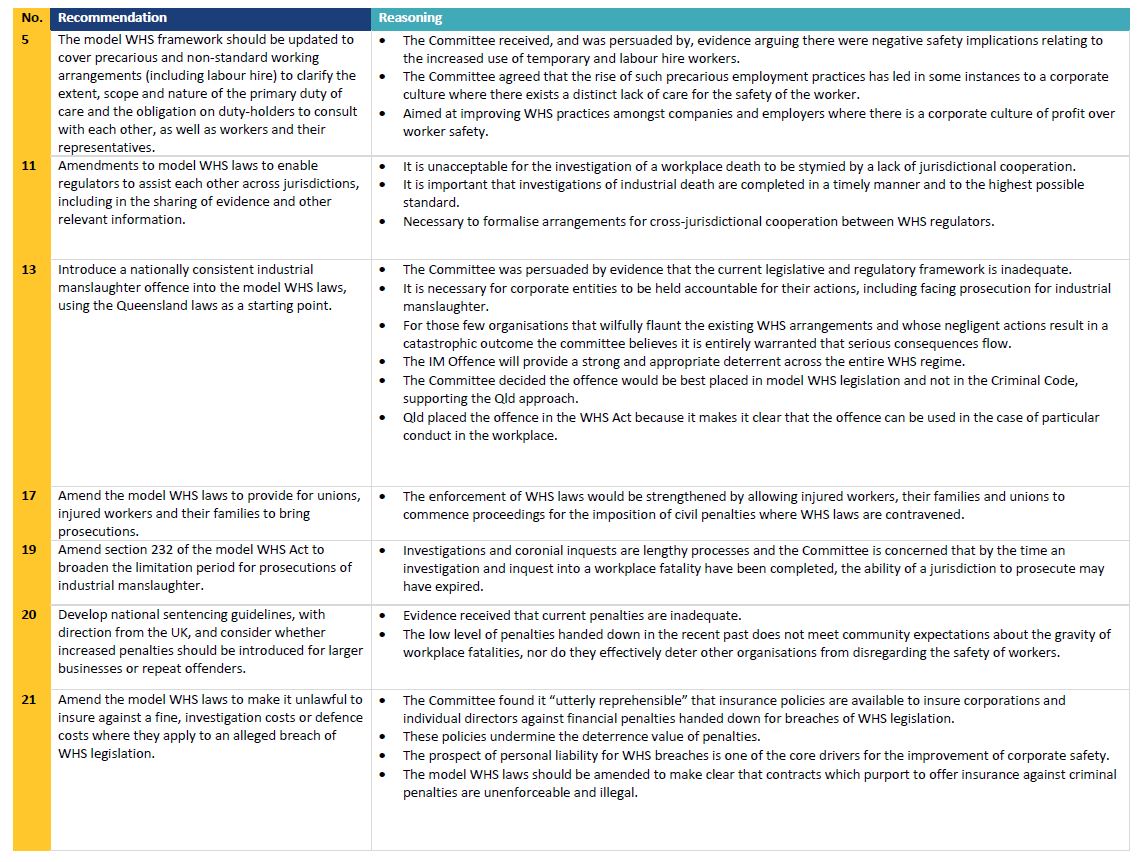A Senate Committee has concluded its deliberations regarding its review into the prevention, investigation and prosecution of industrial deaths. A sense of ‘back to the future’ arises in considering many of the Majority's recommendations. The Majority report recommends giving Unions the right to commence criminal prosecutions, an increase in statutory timeframes for bringing prosecutions, a bigger stick, more offences, higher penalties. This will certainly support the groundswell for industrial manslaughter offences to be introduced. There were some other issues which crept in – including a dramatic broadening of the meaning of ‘officer’, and a formal prohibition on insurance policies providing indemnity for penalties (which is a view HSF supports).
The report from the Senate Inquiry into the Prevention, investigation and prosecution of industrial deaths in Australia was released on Thursday, 18 October 2018.
The Committee made 34 recommendations relating to investigations and prosecutions under WHS Laws, the conduct of WHS regulators and the adequacy of the model legislation. Many, but not all, of these were supported by the Minority (ie. Government Report). To see the particularly noteworthy recommendations of the 34 made, click the image below.
The Committee also recommended that:
- corporations that repeatedly breach WHS obligations and cause death or serious injury should not be awarded Government Contracts;
- Governments should ensure that their WHS regulators are adequately funded and resourced to allow them to complete investigations in a timely, thorough and effective manner;
- training modules for investigators be developed to ensure all investigators are able to carry out high-quality investigations, and best practice guidelines for investigations be developed;
- all industrial deaths should be investigated as potential crime scenes;
- the regulator should be required to publish written reasons as to why a prosecution was not brought, or a coronial inquest was not conducted, after an industrial death; and
- the definition of ‘officer’ in the model WHS laws be revised to better reflect the capacity of the person to significantly affect health and safety outcomes.
These recommendations are likely to be considered in the national review of model WHS laws which will be finalised by the end of the year.
This article was prepared by Sarah Connolly, paralegal in our Brisbane office.
For more information or advice on this topic, please contact:

Steve Bell
Managing Partner - Employment, Industrial Relations and Safety (Australia, Asia), Melbourne
Key contacts

Steve Bell
Managing Partner - Employment, Industrial Relations and Safety (Australia, Asia), Melbourne
Disclaimer
The articles published on this website, current at the dates of publication set out above, are for reference purposes only. They do not constitute legal advice and should not be relied upon as such. Specific legal advice about your specific circumstances should always be sought separately before taking any action.



